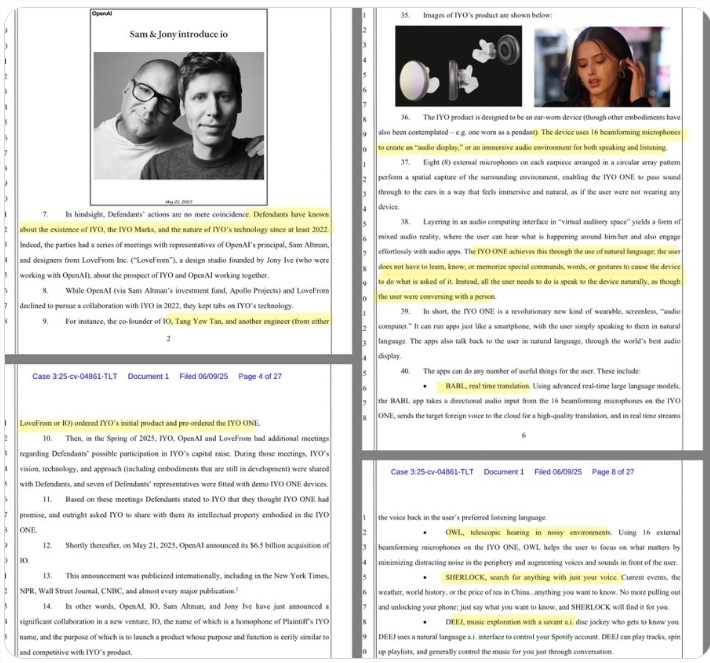OpenAI Faces Copyright Scandal Over $6.5B IYO Tech Acquisition
OpenAI Accused of Plagiarizing Smart Earpiece Tech
Startup IYO, a Google X Lab spin-off, has accused OpenAI and CEO Sam Altman of stealing its smart earpiece technology. The controversy emerged after OpenAI acquired Jony Ive's company IO for $6.5 billion—a move IYO alleges was intended to mask the alleged plagiarism.
The Allegations
IYO claims OpenAI gained access to its proprietary tech during collaboration talks in 2024. After negotiations collapsed, OpenAI partnered with Ive, who reportedly tested IYO's product before launching a similar project under IO.

"OpenAI copied our core concept verbatim," said IYO CEO Jason Rugolo, noting the phonetic similarity between 'IO' and 'IYO.'
Legal Battle Escalates
On June 9, 2025, IYO filed a lawsuit alleging trademark infringement and unethical competition. A court-ordered injunction forced OpenAI to remove all IO promotional materials, including a keynote video featuring Altman and Ive.
OpenAI responded: "We dispute these claims and are evaluating legal options."
The $6.5B IO Project
Announced in May 2025, OpenAI's acquisition of IO marked its largest deal to date. The venture—led by Apple alumni—aims to launch a "screenless AI device" by 2026. Altman pitched it as "the post-smartphone future," while Ive promised "human-centric redesign of tech interaction."
Industry Implications
The dispute highlights intensifying competition in AI hardware, where screenless devices like smart glasses and earpieces are becoming battlegrounds for tech giants. Analysts note OpenAI's struggles in hardware (e.g., the failed Humane AI Pin acquisition) amplify reputational risks from this case.
Key Points
- Legal claim: IYO alleges OpenAI stole IP after failed partnership talks
- Trademark clash: Court temporarily blocks IO promotions amid naming dispute
- Strategic shift: $6.5B IO deal represents OpenAI's biggest hardware bet yet
- Market impact: Case could reshape ethical standards in AI product development